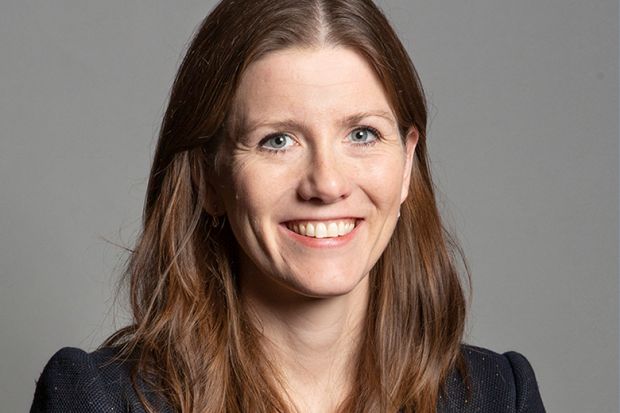Students at universities that are forced to move their courses online because of coronavirus cases on campus should not have their teaching hours reduced, England’s universities minister said.
The University of Liverpool became the latest institution to halt in-person classes, making the announcement on 8 October, following similar moves by Liverpool John Moores and Liverpool Hope universities.
Other institutions teaching largely online-only include the universities of Manchester and Sheffield, and Newcastle, Northumbria and Manchester Metropolitan universities. All are located in Covid-19 hotspots.
The English higher education regulator said on 9 October that it was “actively monitoring” teaching standards in universities that were shifting to online tuition.
The Office for Students said that it was seeking to ensure universities clearly communicated changes in teaching plans and that they “maintain the quality of their provision that is accessible for all”. It said that it was monitoring data that may indicate issues with quality, such as dropout rates.
Nicola Dandridge, the OfS’ chief executive, said that when universities move teaching online “it is vital that they honour the promises they made to students when they applied and that the quality of what is on offer online remains high”.
“With the rapid changes in course delivery as a result of public health advice, we are actively seeking assurances from individual universities and colleges about the quality of their online and blended offers, and that the course will be delivered as promised during the current academic year even if changes are required for public health reasons,” Ms Dandridge said.
“Indeed, while online teaching is of course different to face-to-face teaching, many universities and colleges have developed innovative and good-quality digital provision for their students. Where we believe universities and colleges are not delivering on this, we can investigate and take action if the quality of courses falls below our minimum requirements.”
Michelle Donelan, the universities minister, said that students “should be assured that certain standards must be met”.
“Both the government and the Office for Students expect universities to be as open and transparent as possible with students regarding their lectures and classes, and I can see no reason why students should see a reduction in contact hours. If there are concerns, the OfS has the powers to take action,” Ms Donelan said.
About 100 universities across the UK are now believed to have reported coronavirus cases among their staff and student communities.
A Liverpool spokeswoman said that teaching had not been due to start at on most courses at the university until 12 October. Students “will receive high-quality online instruction with a mix of pre-prepared content together with the opportunity to learn from and interact with their lecturers and peers in real time”, she said.
“We have carefully prepared for the beginning of the new academic year, with a wide range of measures in place to maximise student and staff safety, including a significant reduction in face-to-face teaching and a range of contingency measures should further action be required,” the spokeswoman said.
Martyn Moss, a regional official with the University and College Union, said: “Much more support must be provided to staff so they can give students the best possible remote learning experience under these difficult conditions, and the university now needs to allow students to safely return home if they wish to do so and undertake careful longer-term planning, instead of rushing to return to in-person teaching.”
Register to continue
Why register?
- Registration is free and only takes a moment
- Once registered, you can read 3 articles a month
- Sign up for our newsletter
Subscribe
Or subscribe for unlimited access to:
- Unlimited access to news, views, insights & reviews
- Digital editions
- Digital access to THE’s university and college rankings analysis
Already registered or a current subscriber?










